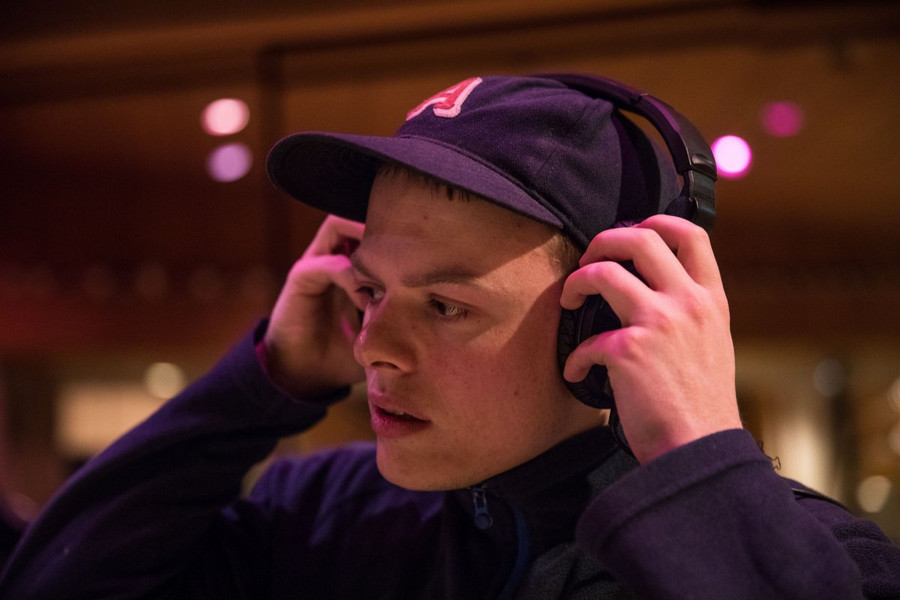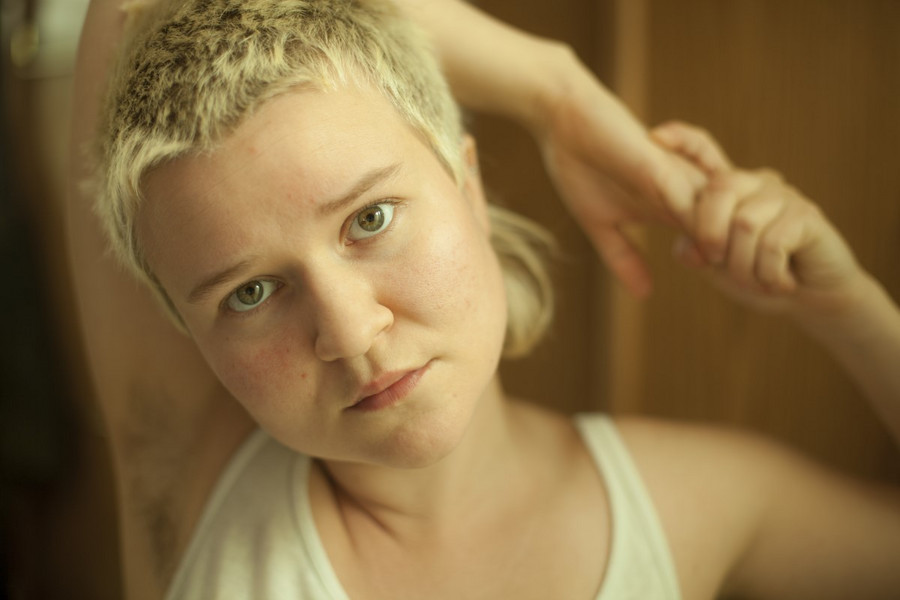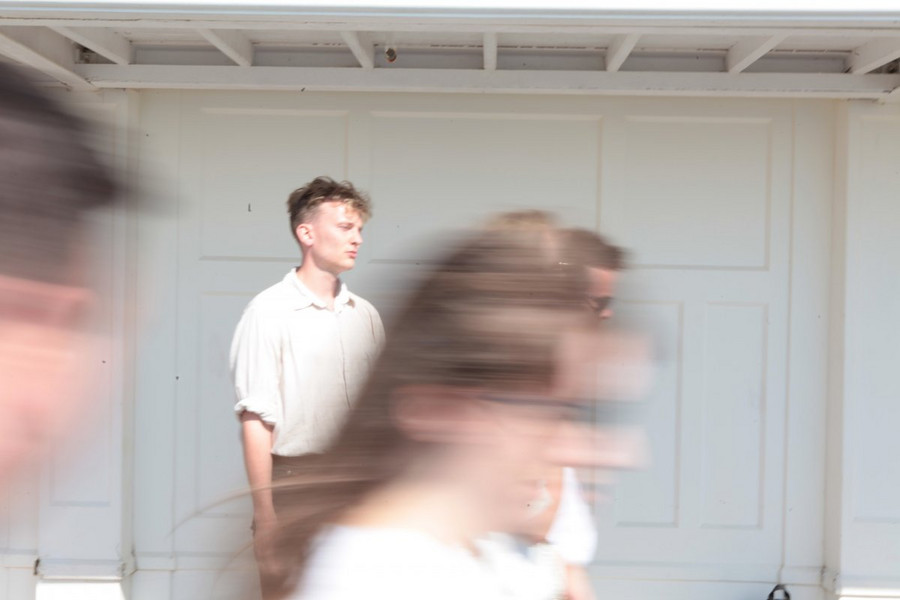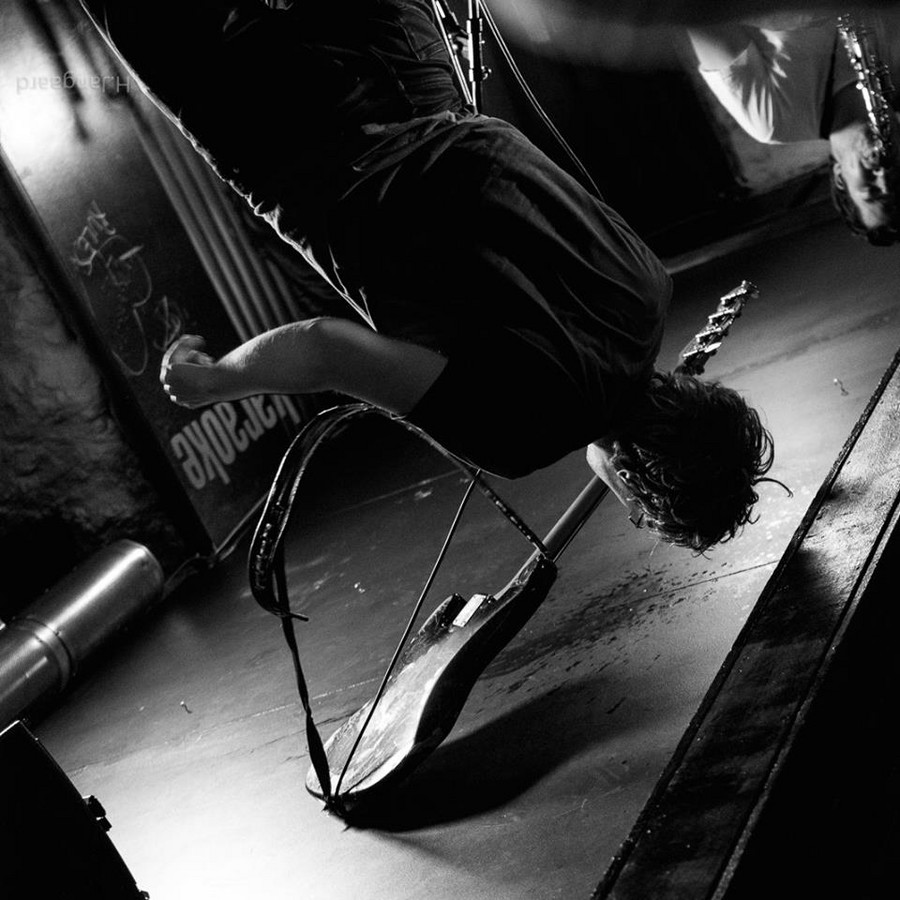Graduates of the programme are typically employed as freelance musicians in bands, or as soloists, or in connection with theatrical, television and film productions. Some work as composers, songwriters and producers in their own projects or those of other artists. Many trained musicians also teach in music schools, folk high schools, continuation schools or day schools, or as private music teachers. Finally, some establish their own businesses, for example in the fields of learning, computer games, sound design, film music, etc. The employment opportunities depend on both market fluctuations in the business and on the priorities of cultural policy, and may therefore vary a great deal.
Selina Lannie, graduated in 2018
What’s your job now?
I work professionally as a musician and songwriter in the band Nelson Can and continue my studies at RMC with the Master’s Programme Music Creation.
What’s a typical work week for you?
As a professional musician and a student as well not two days are the same. Most weeks I attend classes or do assignments at the school - I also use the school facilities to write the music I use in my career as a musician. Some weeks I tour, and other week are spent on working on recording albums or creating new projects. Basically, my daily life is pretty fluid and you quickly become skilled at finding your own routines in what may feel like chaos.
Why did you choose to study Music Performance?
I heard from friends that the school was changing and that a theoretical background wasn’t needed to be admitted. I had never attended any kind of music school or received tuition before, so it was just obvious to me to try and apply. And then I came in. The Music Performance programme fit just perfect for me because I had no idea what kind of musician or artist I was and could be, and the programme opened all sorts of doors to creativity.
What’s the best thing you got from the programme?
That you can really shape and use your education and your time at RMC as you wish. You can tailor it to suit your needs. You can choose to take everything with you going forward or learn how to sort in the knowledge you wish to use in your art or your future in the music industry.
What does the future hold for the music industry?
I sense a widespread DIY, do it yourself, approach to the industry where musicians are getting better and better at seeking knowledge about their own careers. And a DIT, do it together, where we as industry people as well as musicians help each other forward and share our knowledge. If it continues, then the future in the music industry seems very bright now.

Laurits Hyllested, graduated in 2018
What’s your job now?
I teach at two music schools and work as a freelance drummer and composer. Besides helping in many projects, I also compose the music for a documentary series and working on my debut album.
What’s a typical work week for you?
It is difficult to be your own boss. I aim to structure my day so that I work on administrative tasks in the morning to free up time and space in the afternoon to work on what is important to me at the moment. Before I graduated, I was nervous whether I would create music at all after I graduated since I would be alone. However, I have found there is a ton of things to do if I just remain a bit proactive. The hardest part is to prioritize the most important things.
What’s the best thing you got from the programme?
The network. I got a large network that I rely on a great deal for all my work. Besides this, I had the opportunity through the programme to get to know some of the musicians who I look up to the most and this really validated myself and the importance of believing in my own musicality.
What does the future hold for the music industry?
I don’t know that much about the industry, but I know a lot of exciting music is being created which is the most important. I think it is important in the current time that endorses the individual and the personal project to hold on to some of these communities which are established during your education or other places and be aware of how to help each other create a life with music.

Danielle Dahl, graduated in 2015
What’s your job now?
Currently, I’m back at school again, taking my Master’s degree in Los Angeles at CalArts, but since I graduated I have worked freelance as a composer and musician.
What’s a typical work week for you?
My freelance work is divided between composition work in the form of commissioned work for small chamber ensembles and touring and working in the studio with my solo project. There is a lot of administrative work writing applications, budgets, emails, and so forth. I did not expect becoming a musician would be like that, but it feels like it’s what I spend most of my time on.
What’s the best thing you got from the programme?
The most important was meeting a lot of other musicians and quickly getting a big network in Copenhagen, where I had just moved. I played a lot of concerts and wrote a lot of little compositions. I thought it was exciting to be forced to collaborate with musicians that were very different from myself – I got a new perspective on myself and my work. It also made me believe that I was actually good at creating music, which I didn’t really believe before I started at RMC.
What does the future hold for the music industry?
I think there is a general tendency that you have to be good at a bit of everything and I think that is really cool actually. Living in the USA really puts the different public support opportunities in Scandinavia into perspective, we are so lucky to have so much public support for culture and I hope it won’t disappear in the years to come. Here in the land of unchained capitalism people must work extensively next to working on their music. It creates an energy which can be good, but at the same time, I think that quality often suffers from people not having enough time to really become absorbed in the music. I hope the streaming models becomes better for smaller, independent artists.

Tobias Johannes Pfeil, graduated in 2016
What’s your job now?
I work as a freelancer and with many different projects. I have my own project Tobi Duchampe, an art/performance project that is still shifting in characteristics and form. On the side, I produce music for theater and film and play in bands. I also run the concert series and underground label Fake Boom.
What’s a typical work week for you?
My week varies a lot and is very unpredictable. But I like it that way. When I get going it is non-stop. A week maybe on tour someplace in Europe where we play every evening. Then maybe a week where I work at a theater performance. And then maybe followed by a week where I catch up on my emails and mix tracks for my own project.
Why did you choose to study Music Performance?
Since I was 10 years old I knew, I wanted to work in music. I applied because I was very interested in being an instrumentalist in a series of different contexts and needed an education that provided me with plenty of stimuli and freedom to explore on my own hand.
What’s the best thing you got from the programme?
An insane amount of impulses and reflections from fellow students and the teachers. I got the opportunity to have classes with some really cool people that really gave me insight into how to make music a way of life. At the same time, I learned a great deal about digital music production which is essential to what I do now.
What does the future hold for the music industry?
Music is timeless and universal in itself. So, I am not afraid on its behalf. The industry shoots itself in the foot by creating limited arenas and expressions it then capitalizes on until there is nothing left. I focus on the music and the freedom that arise in the musical moment and I do not think too much about the industry besides contacting and trying to cooperate with people I think have something interesting going on.

Jonatan Uranes, graduated in 2017
What’s your job now?
If I‘m mixing, soldering, dubbing, programming, or designing, then I’m mostly doing it in my flat. If I’m noisy, I’m in the rehearsing room. If I’m performing, it often happens in venues or houses. I also have a side job as a store assistant in Brinck Elektronik where I earn my money.
What’s a typical work week for you?
All days are different. I don’t really have any routines. For example, I recently went on a tour with my noise rock-duo Uraño. In the six months leading up to the tour, a lot of my time went with sending emails to the promoters, compose/record/mixing our release, designing covers and tour graphics, dubbing cassette tapes, programming our website, and finally rehearsing our music.
Why did you choose to study Music Performance?
It was the education best fitting my visions about what music is and can be. The reason why I even took an education was that I wanted to explore music full time, without being financially dependent on it.
What’s the best thing you got from the programme?
There are many good things I have learned from attending RMC. Among other things that I prefer not to relate academically to it while doing my noise. Maybe most importantly I have met a lot of people who I probably wouldn’t have met otherwise. And have had countless conversations about music that I haven’t found anywhere else.
